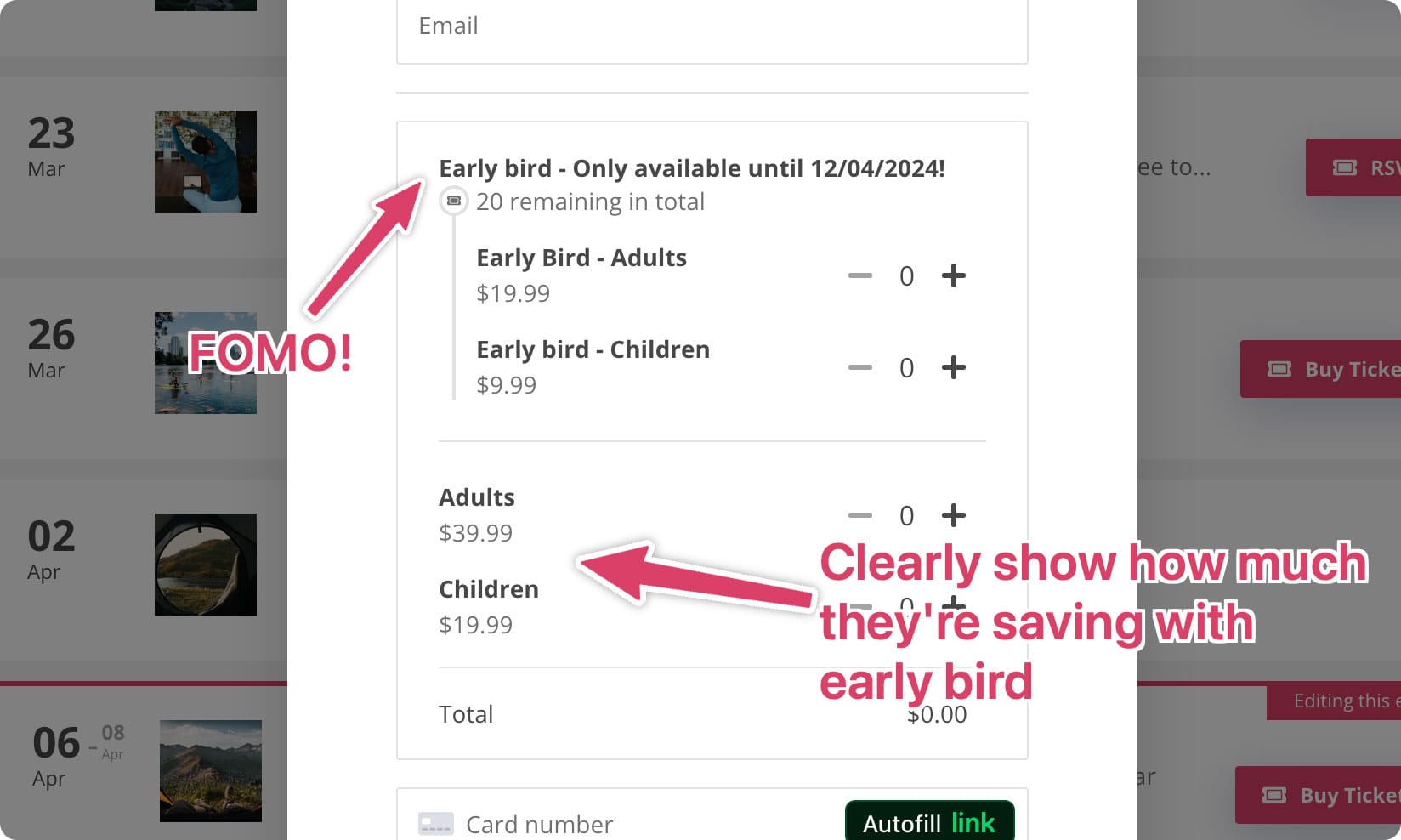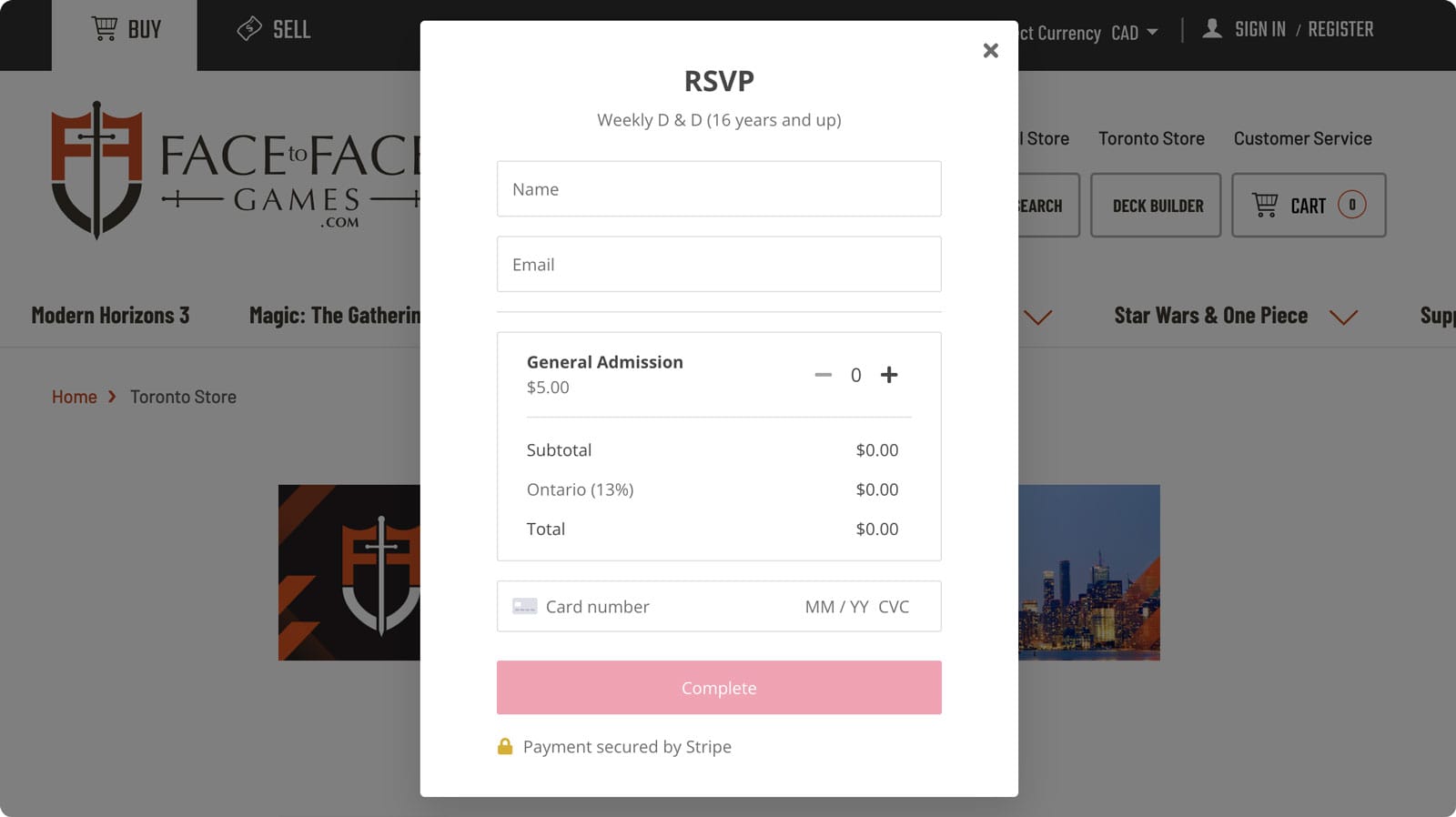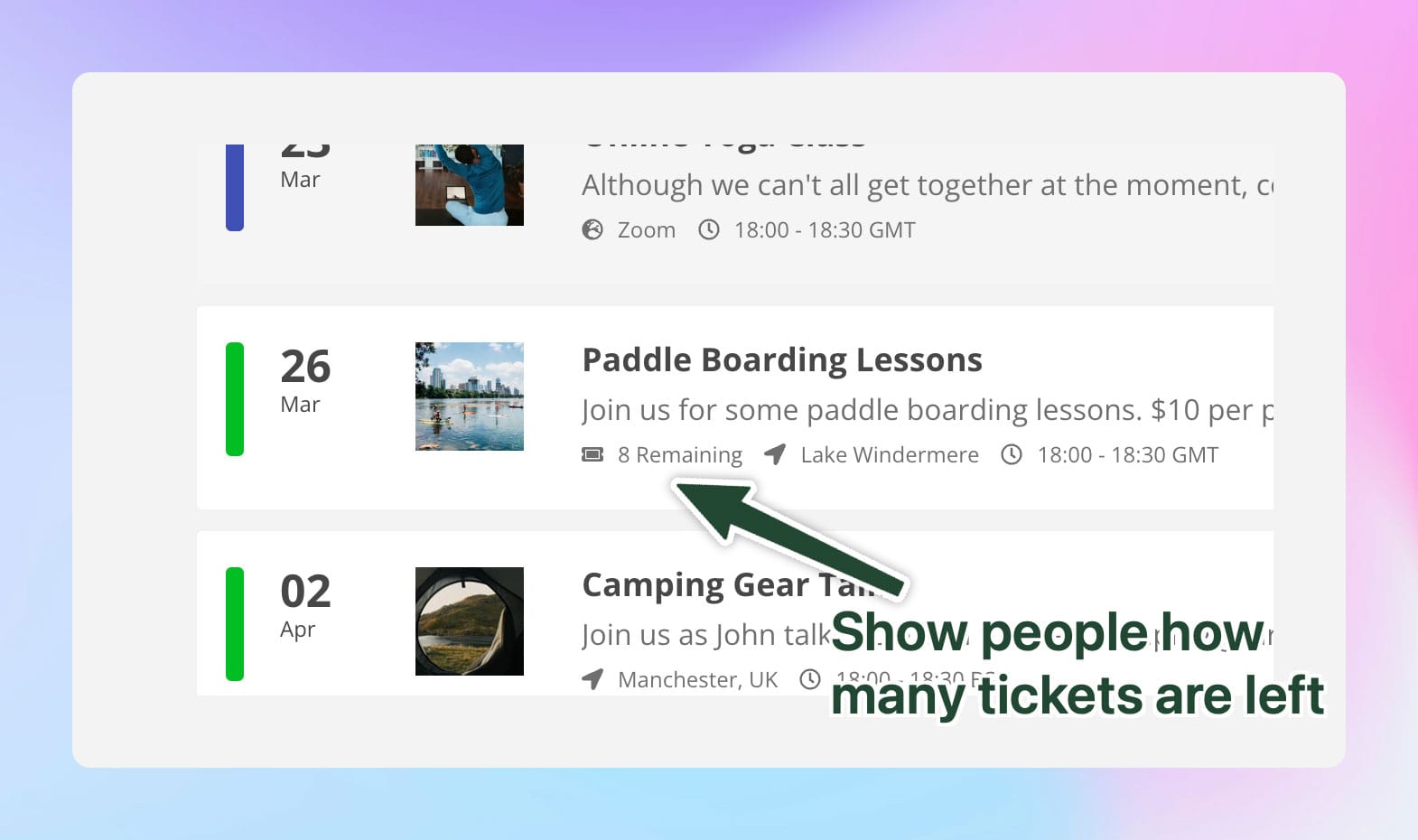How to Sell Event Tickets Fast: 6 Ways to Boost Ticket Sales
All the event planning is done. The schedule’s in place, the venue is good to go, and you’re ready to roll. Congrats!
But before we pop the champagne to celebrate, there’s still one thing you need to think about.
You need to sell event tickets.
After all, your event might not be so successful if no one shows up.
But where do you start? Figuring out the best way to promote your event and increase ticket sales is a bit of a minefield. The good news is that you’ve come to the right place to cross the minefield in one piece!
In this article, we break down five ways to sell event tickets — and fast.
1) Understand your ideal event audience
The first step to selling more event tickets is… drumroll, please!
Knowing your target audience.
Sure, you can sell tickets without knowing who your ideal event audience is.
But to really increase sales, you need to promote your event to the right audience. Otherwise, you’re spending time and money pushing your event to people who simply aren’t interested.
Let’s use an example to demonstrate.
Imagine that you’re hosting an 80s-themed disco event at a local bar. Big surprise — your ideal audience is anyone who grew up through the 80s listening to disco music. 🕺
If you start promoting your event on TikTok, you probably won’t have much luck. Why? Because most of the users are between the ages of 18-34.
But if you promote your event on Facebook? You’ve got a much higher chance of success, given that it has a higher percentage of users born before or during the 80s.
So now the question is, how do you pinpoint the ideal demographic for your events?
Well, there are a couple of ways to tackle this:
- Review attendees from your past events. Take a look at your ticket sales from past events to spot any trends in demographics. Are most of your audience female? Or aged 18-30? Or living in central London? These trends paint a picture of your ideal event audience and the best way to engage with them.
- Take a look at your competitors. Do they have any events doing similar things? If so, who’s attending their events? Looking at what your competitors are doing can help you spot your ideal event audience.
2) Use the right ticketing strategy
We’ve got a question for you: do you think that the type of tickets you sell can help you boost ticket sales?
Spoiler alert — it can!
If you want to increase ticket sales quickly, the type of tickets you sell can play a vital part.
Think about early bird tickets as an example.
If you offer a lower price for early bird tickets (or a limited number of pre-sale tickets before the big event), it can encourage people to buy tickets before the general sale. It’s all about the FOMO!

Tiered pricing is another example, where you can charge a higher price for better seats or perks. Theatre performances use this type of pricing. Their guests pay more for seats closer to the stage or with a better view.
Tiered tickets can create a sense of urgency around your event. The sooner people buy tickets, the better tickets they get. If they wait too long? They risk missing out on some awesome seats.
So how do you know which type of ticketing strategy is right for your event?
Ultimately, it’s up to you to decide which type of ticketing is right for your event. Start by thinking about the type of event you’re hosting, your audience, and your venue. This will help you pinpoint the types of tickets that suit your specific event.
Some food for thought: You must consider the layout and structure of your venue when choosing the right type of ticket. Is tiered pricing an option if you’re hosting a cooking class in a local professional kitchen? Probably not. But could you create VIP tickets to provide one-on-one support to certain attendees? Absolutely.
3) Make it easy for people to buy tickets
Picture this: you’re trying to book a spot on a local yoga class. You add the class pass to the basket, and head to the checkout.
Oh, wait a second — the website’s frozen.
A few minutes later, the website loads and you’re finally ready to add your card details and confirm your place. Result!
But hold up — another issue. Whenever you click ‘pay now’, the website throws you from the checkout and you have to start all over again.
It sounds stressful, right? Pretty much the opposite of what you want when booking a relaxing yoga class.
But we’ve all been there. Whether booking an event ticket or buying a new pair of shoes, we’ve all faced technical glitches. And how many times does this make you leave the website before completing the sale?
22% of people abandon an online purchase because the checkout process is too long or complex. 17% leave because of website errors.
So, what’s the solution?
Make the ticket-buying experience as smooth and seamless as possible.
When people can easily buy tickets for your event, they’re more likely to follow through! And the good news is that there are tools that streamline the ticket-buying process for both you and your guests.
Take a look at Event Calendar App as an example. We’ll admit, we’re slightly biased towards our software — but with good reason.
Unlike other event ticketing platforms, customers can register for your events directly from your website.

That’s right — our system embeds straight into your existing site. This means that customers can buy tickets without being redirected. Talk about streamlining the buying process!
4) Use social media to your advantage
Social media is a big player in promoting your event and selling tickets. It helps you spread the word about your event, reach a wider audience, and engage with potential guests — all of which can boost ticket sales.
But if you’re looking to sell tickets fast, there are certain tricks to the trade. Creating a buzz around your event when tickets go live is one of these tricks.
This could involve:
- Hosting a live stream to announce tickets are on sale.
- Launching a limited-time discount for early bird tickets.
- Videos from past events to show people what they miss out on if they don’t buy tickets. Again, it’s all about the FOMO!
- Working with social media influencers to promote your event to a wider audience.
You could also post updates ahead of the launch. For example, posting a countdown that announces when tickets are live.
Essentially, it’s anything that encourages people to find out more and potentially buy tickets.
Another useful tactic is using paid social ads.
Promoting your event with ads helps you get in front of the right people, at the right time.
You can set parameters on social channels to target people within your ideal demographic and who have similar interests to your followers. And, you can schedule ads to go live after the tickets are live.
Two birds (and then some!) with just one stone.
5) Got an email subscriber list? Send emails!
If you have a list of email subscribers, use it. After all, you have their emails for a reason, right? They’ve either been to one of your previous events or signed up for your emails because they’re interested in what you do.
In other words, subscribers already have a connection to you and your event. Capitalize on this connection, and you’re in a much better position to boost ticket sales!
One of the ways to do this is to create a nurturing email campaign - also known as a drip campaign. It involves sending emails to your subscribers at certain timeframes.
For example, you might start by sending an email that notifies people that the event is happening. Then, an email to announce when tickets are going live.
Finally, you send a reminder email before tickets are available to buy, and a final email on the day they’re live. Each email is carefully crafted to encourage people to buy event tickets.

How exactly do you convince people to buy tickets in your emails?
Similar to what we covered in the last section, these emails are all about creating a sense of urgency. You need to show subscribers why there’s absolutely no way they should miss your event!
Add videos of previous events, outline all the amazing things they’ll experience, and really focus on why they won’t want to miss it
Take a look at this email as an example:
Hey [insert name],
So, big news — 🎉 our next Samba workshop is happening on the 1st of September! 🎉
And trust us, you won’t want to miss it:
- Expert coaching from world-class professionals 💃
- Suitable for all levels 🥳
- Devour authentic Brazilian food and drink 🤤
- Good vibes all round 👏
[Embed video from the last workshop]
Early-bird tickets go live on August 1st, and we’ve only got a limited number of spots.
See ya there amigos!
Think about the email subject line, too. You want to encourage people to open the email, so make it enticing. Otherwise, all your efforts in writing these emails (which, let’s face it, can be pretty boring) will be for nothing.
Here are a few examples to get you started:
- Don’t miss out: New Samba workshop is on the horizon!
- Get early-bird access! Join our latest Samba workshop 💃
- Big news! Samba workshop coming this September 🕺
Get some more subject line inspo in our article about how to write event reminder emails!
6) Use scarcity to increase urgency
People love things that are in short supply. Think about Glastonbury as an example. The hype around that event is wild!
And yes, there are a lot of amazing acts and incredible things to do at the festival. But one of the biggest draws to the festival itself is whether you can actually get a ticket. People sign up months in advance and wait for hours on release day for the chance to get tickets.
And why? Because there are only so many tickets.
They’re in limited supply.
Now, we know that it’s unlikely you’ll have the same amount of interest and Glastonbury (we can dream though!). But you can increase ticket sales by drawing attention to your limited amount of space.

Here are some of our suggestions:
- Let people know that your event only has a limited number of tickets available. Send them an email or post it on your social channels: “Limited tickets available! Only 50 spots 👀 Don’t miss out — sign up sooner rather than later!”
- You can also post on social media or send email updates when you’re running low on tickets. Saying things like “Only 10 tickets left!” can ignite FOMO and encourage people to sign up.
- Show people exactly how many tickets are available when they visit your website. That way, you might encourage an on-the-spot sale from someone who doesn’t want to miss out!
Hot tip: You can use Event Calendar App to display how many tickets are available for your event! When people head to your website, they’ll instantly see the number of tickets available. And when the number gets low? They’ll be more inclined to secure their spot.
Looking for a fast way to sell event tickets? Use Event Calendar App
Creating a sellout event is always the end goal. But how do you get there? That’s where tactics and strategy come into play.
Use this article as a starting point to generate some excitement around your event and sell as many tickets as possible as soon as they go live.
And if you need a way to make it as easy as possible for customers to buy tickets? Use Event Calendar App (that’s us —hi 👋). Sign up for a free trial to see what all the fuss is about.

